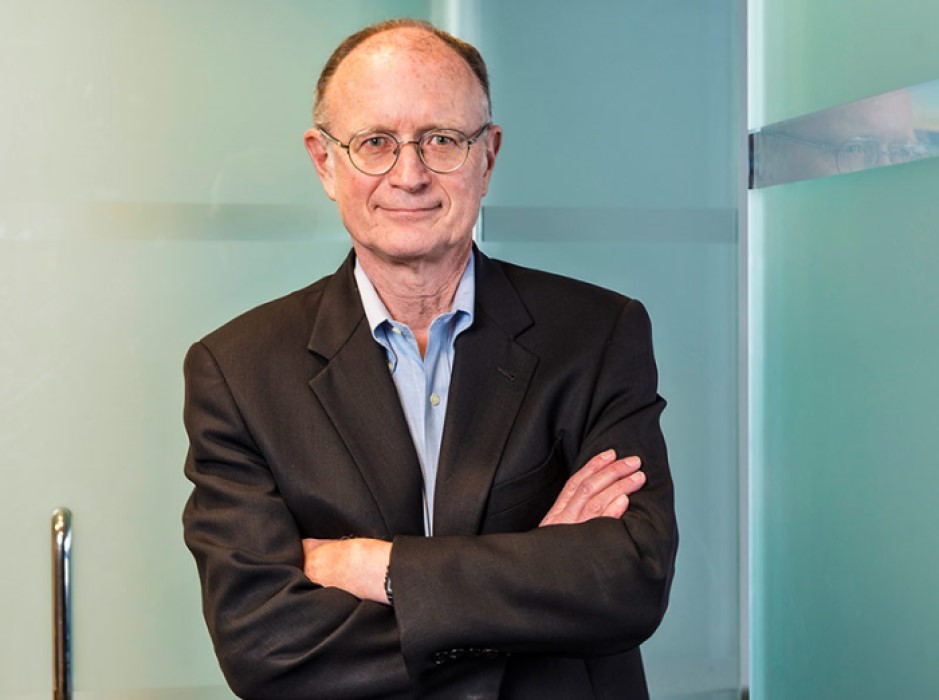Friday, July 21, 2023

Mike Witherell
Director, Lawrence Berkeley National Laboratory
Ph.D., Physics, University of Wisconsin, Madison
B.S., Physics, University of Michigan, Ann Arbor
Michael Witherell is a leading physicist with a highly distinguished career in teaching, research and managing complex organizations. He has received numerous honors and recognitions for his scientific contributions and achievements. Witherell is the former director of the Fermi National Accelerator Laboratory (Fermilab) in northern Illinois and last held the Presidential Chair in Physics at UC Santa Barbara (UCSB) where he was also vice chancellor for research. He was named director of Berkeley Lab by the UC Board of Regents in January, 2016.
Lawrence Berkeley National Lab is an internationally renowned institution dedicated to addressing the world’s most urgent scientific challenges, from advancing sustainable energy and protecting human health to revealing the origins and fate of the universe. As the original home of “team science,” which emphasizes interdisciplinary research in the public interest, Berkeley Lab’s scientific expertise has been recognized with 13 Nobel Prizes. The University of California has managed the lab on behalf of the U.S. Department of Energy (DOE) since its founding in 1931.
Following a national search and acting on the recommendation of Napolitano, with the concurrence of U.S. Secretary of Energy Ernest Moniz, the Board of Regents approved Witherell’s appointment as the eighth director of the Berkeley Lab. Witherell replaced Paul Alivisatos.
Witherell first came to UCSB in 1981 as an assistant professor of physics from Princeton University. Soon after joining UCSB, he led a Fermilab experiment that collected and studied the first large sample of charmed particles observed with a silicon microstrip vertex detector. As a result of that experiment, Witherell was awarded the W. K. H. Panofsky Prize in Experimental Particle Physics from the American Physical Society in 1990.
In 1999 Witherell was appointed director of Fermilab, the DOE laboratory dedicated to high-energy physics. During his six years as director, Fermilab upgraded the Tevatron accelerator complex, the highest-energy collider then operating. The laboratory also completed a $150 million project to build a long-baseline neutrino facility, which sent a beam of neutrinos 450 miles underground to a detector built at the Soudan Underground Laboratory in northern Minnesota.
In 2005 Witherell rejoined the UC Santa Barbara faculty as vice chancellor for research, where he manages research administration and technology commercialization. He also supervises interdisciplinary research institutes in marine science, earth science, neuroscience, social sciences and ethnic studies, in addition to the California Nanosystems Institute and six sites of the UC Natural Reserve System.
In 2010, while continuing as UCSB vice chancellor for research, Witherell returned to conducting research on the nature of dark matter. He joined the LUX collaboration, which completed the most sensitive search for interactions of dark matter particles with normal matter.
Witherell is also part of an international research team that designed the LUX-Zeplin (LZ) project, an experiment that will be three orders of magnitude more sensitive than LUX. In 2014 the LZ project was selected as the largest next-generation dark matter experiment in the DOE’s High Energy Physics program.
Witherell is a member of the National Academy of Sciences and a fellow of the American Physical Society, the American Association for the Advancement of Science, and the American Academy of Arts and Sciences. He currently chairs the Board on Physics and Astronomy at the National Academies; sits on the Committee on Science, Engineering and Public Policy at the National Academies; is a member of the American Physical Society’s Physics Policy Committee; and, serves on the Board of Directors for Science for Nature and People. Witherell is the 2004 recipient of the Department of Energy Secretary’s Gold Award.
He received his Ph.D. from the University of Wisconsin, Madison, in 1973 and his B.S. from the University of Michigan, Ann Arbor, in 1968.